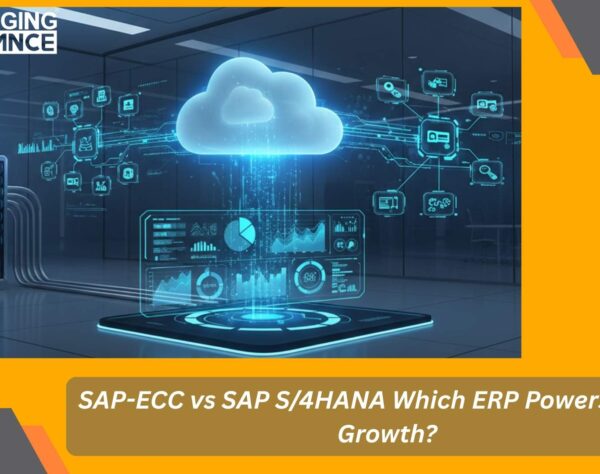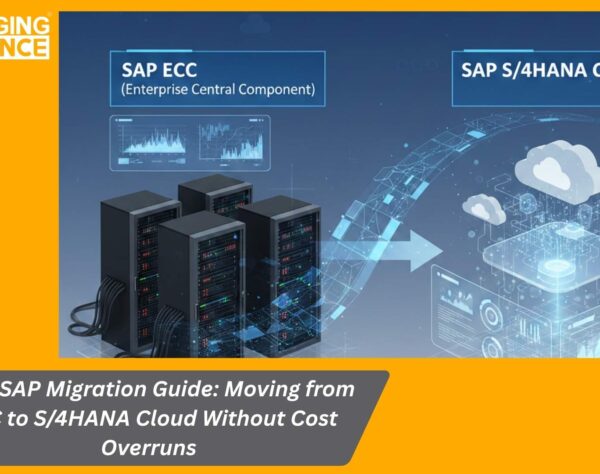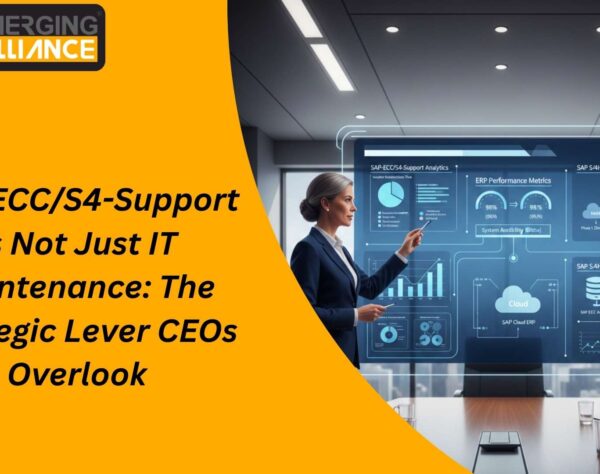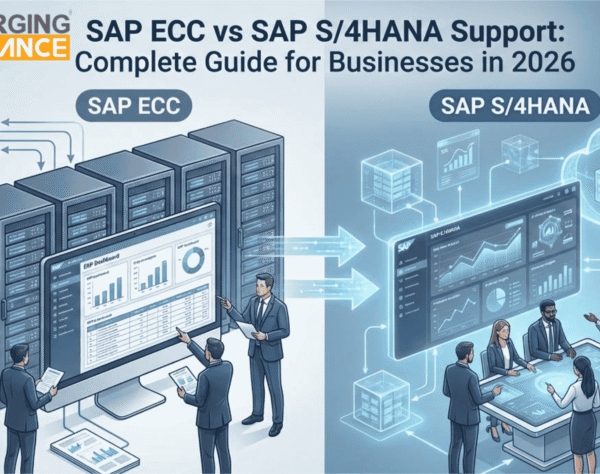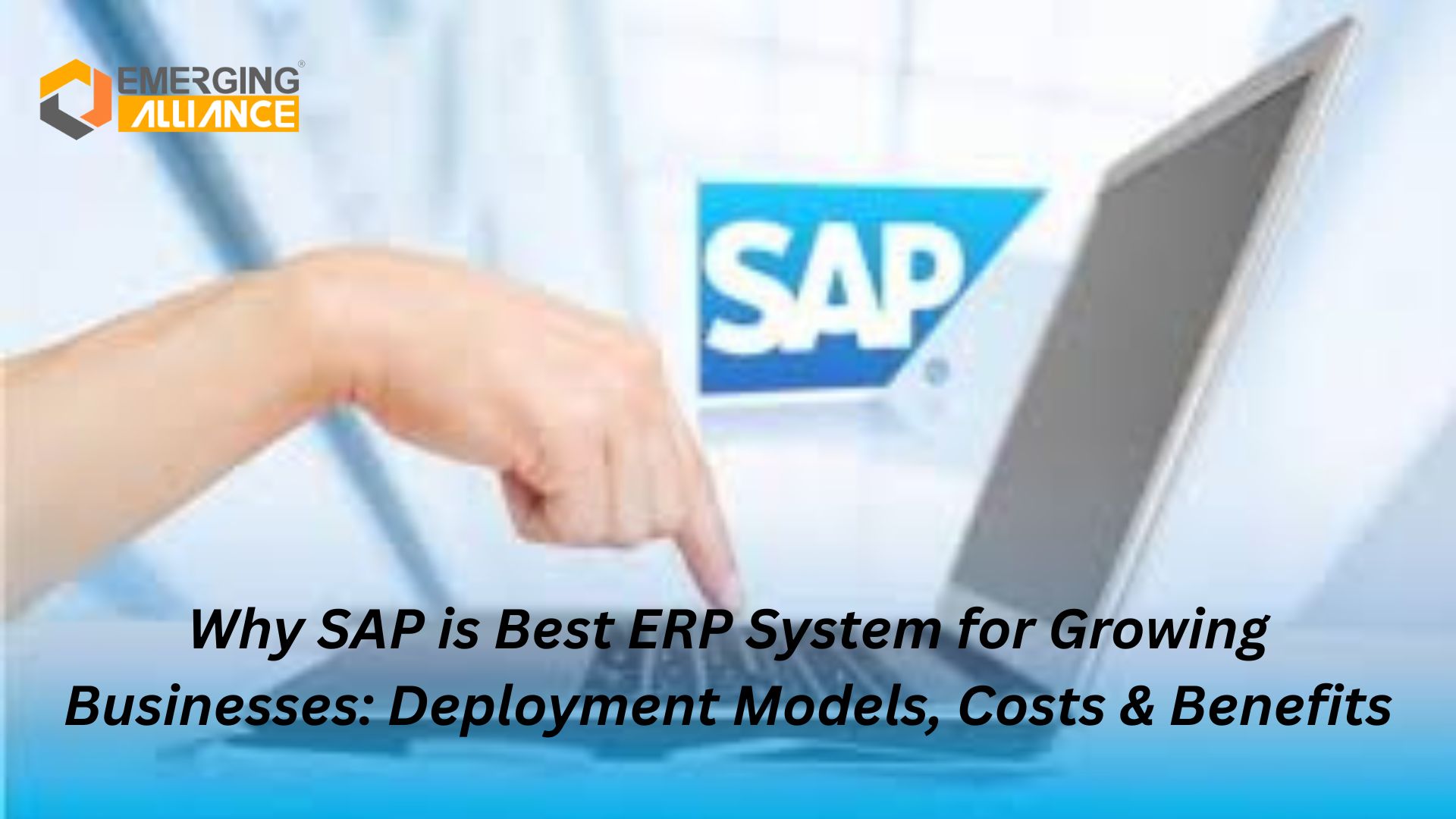
Why SAP is Best ERP System for Growing Businesses: Deployment Models, Costs & Benefits
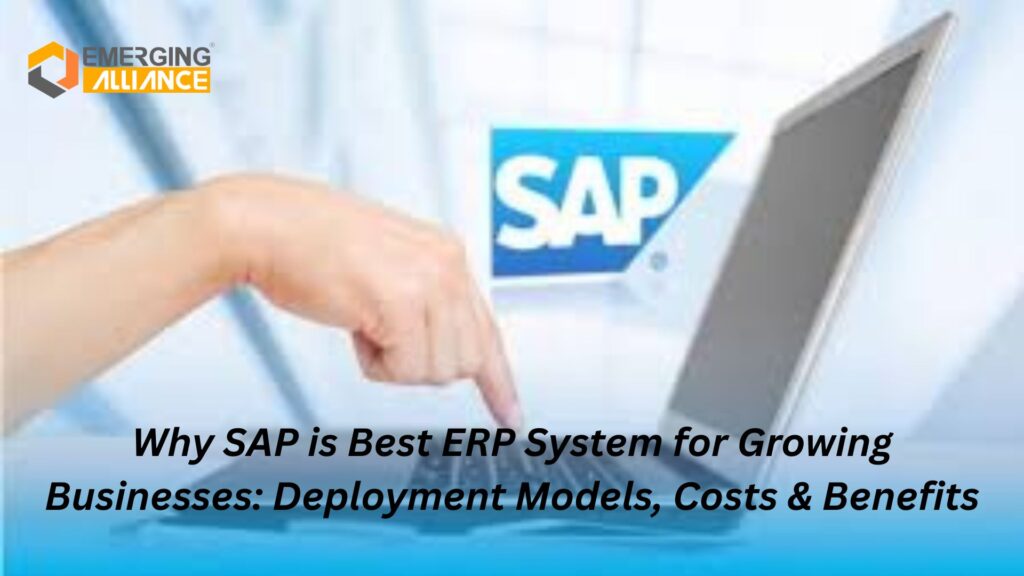
Why SAP Is Perfect for Small and Mid-Sized Companies
Choosing the right ERP system can make or break your business. Whether you’re managing finance, inventory, HR, or production, an ERP solution like SAP can integrate everything into a single powerful platform. In this blog, we explore why SAP remains the top ERP choice, how its deployment models work, and what to expect in terms of implementation costs — all while using proven strategies to help your business discover the right solution.
What is ERP and Why Does It Matter?
Enterprise Resource Planning (ERP) software centralizes data and processes across your business — from sales to supply chain to finance. Instead of juggling multiple disconnected tools, an ERP helps you run your entire business efficiently, with real-time visibility and smarter decision-making.
SAP, a global leader in ERP systems, offers a scalable suite of tools that are tailored for both SMEs and large enterprises. And its flagship product for small and mid-sized businesses, SAP Business One, has become a game-changer for organizations looking to streamline operations without breaking the bank.
Popular ERP Deployment Models Explained
Before diving into SAP’s benefits, let’s understand your deployment options:
1. On-Premise ERP
- Installed on your own servers.
- Offers complete control over data and security.
- Ideal for companies with strict IT policies or industry regulations.
2. Cloud ERP (SaaS)
- Hosted on the cloud and accessed via the internet.
- Lower upfront investment, fast deployment, and easy scalability.
- Perfect for SMEs and startups looking for flexibility.
3. Hybrid ERP (Two-Tier)
- Combines cloud and on-premise ERP.
- Common in enterprises with a main headquarters and multiple branches.
- Offers the best of both worlds — control and convenience.
Why SAP is the Best ERP Solution for Businesses
SAP stands out from other ERP platforms for several compelling reasons:
✅ Industry-Ready Templates
SAP comes with pre-configured best practices tailored for industries like manufacturing, pharmaceuticals, retail, and logistics.
✅ Fast and Scalable Implementation
SAP ERP systems are known for faster rollout times and the ability to scale as your business grows.
✅ Low Customization, High Efficiency
With ready-made workflows and dashboards, there’s less need for heavy customization, which saves time and cost.
✅ Proven Track Record
Used by over 400,000 companies globally, SAP has a reputation for stability, innovation, and enterprise-grade performance.
✅ Regular Updates and Support
SAP consistent updates ensure your system stays secure, compliant, and optimized for performance.
Understanding the Cost of SAP ERP Implementation
The cost of implementing SAP ERP can vary based on:
- Deployment Model (Cloud vs On-Premise)
- Number of Users
- Customization Requirements
- Integration with Other Tools
- Training & Support Packages
Cloud-based SAP Business One often comes with a monthly subscription model, making it budget-friendly for growing companies. On-premise solutions may require more upfront investment but offer deeper customization control.
Is SAP the Right ERP for You?
If you’re looking for an ERP that grows with your business, reduces complexity, and offers industry-specific solutions — SAP is a proven winner. Its flexible deployment models, scalable pricing, and enterprise-grade features make it the top ERP system for small and mid-sized companies.
Got Questions About SAP ERP? We’ve Got Answers
What makes SAP the best ERP system for small and medium businesses?
SAP offers industry-specific solutions, real-time data visibility, and scalable deployment options like SAP Business One — making it ideal for SMEs aiming for growth and efficiency.
How much does SAP ERP implementation cost?
SAP ERP implementation costs vary based on factors like deployment type (cloud or on-premise), user count, customization, and integration needs. Cloud options like SAP Business One offer cost-effective subscription pricing.
What are the deployment options for SAP ERP?
SAP ERP supports multiple deployment models: on-premise, cloud-based, and hybrid (two-tier). This flexibility allows businesses to choose based on their infrastructure, budget, and compliance needs.
Is SAP ERP suitable for my industry?
Yes, SAP provides tailored solutions for industries such as manufacturing, pharma, retail, logistics, and more. Pre-configured best practices reduce the need for heavy customization.
How long does it take to implement SAP ERP?
Implementation timelines can range from a few weeks to a few months depending on business complexity, number of users, and required customizations. SAP Business One is known for its faster deployment cycles.
🚀 Ready to take the next step?
At Emerging Alliance, we specialize in SAP ERP implementation, with tailored solutions for your industry and business size. Let us help you unlock the full power of SAP. 📩 Contact us now for a free ERP consultation.




